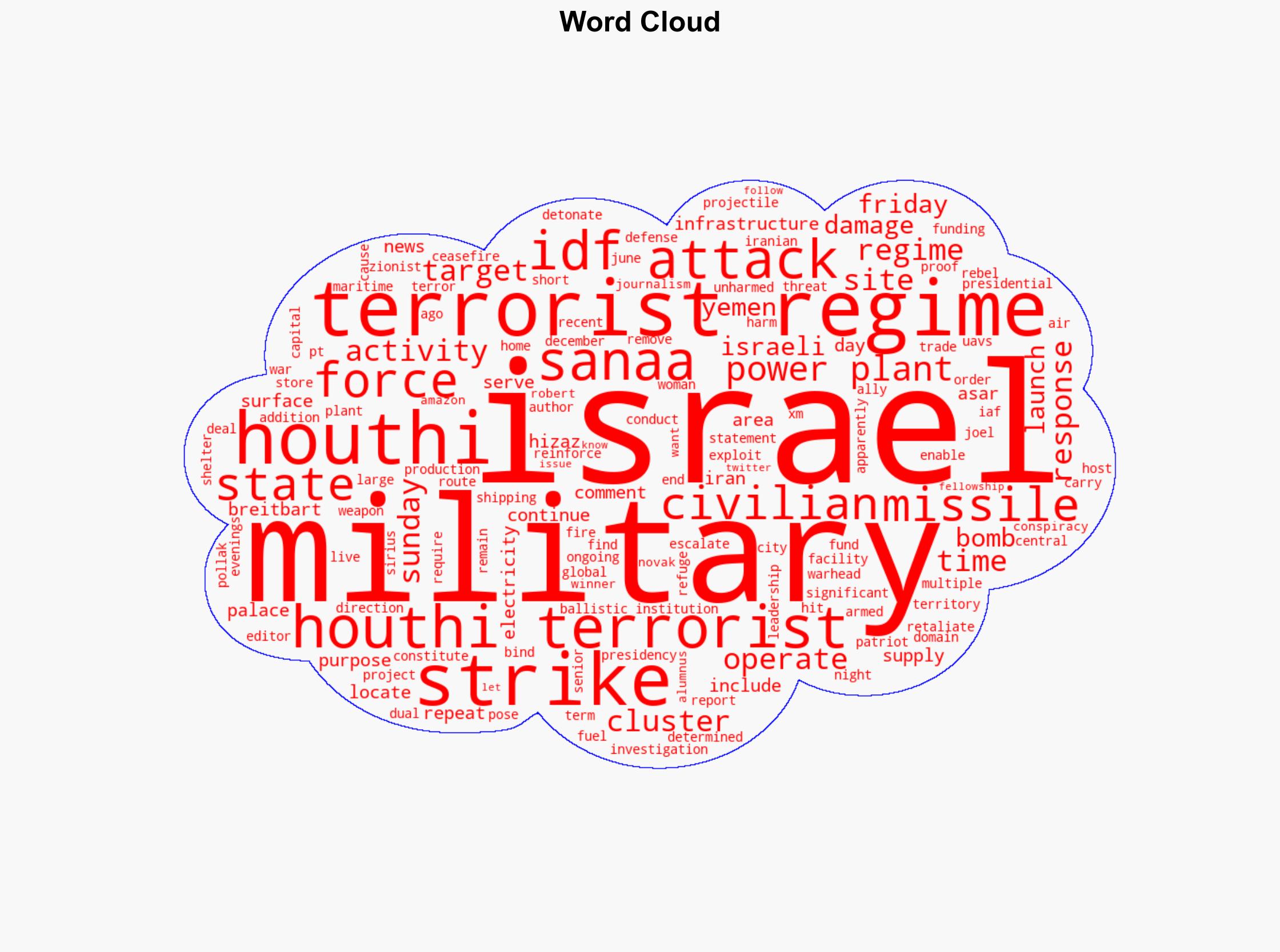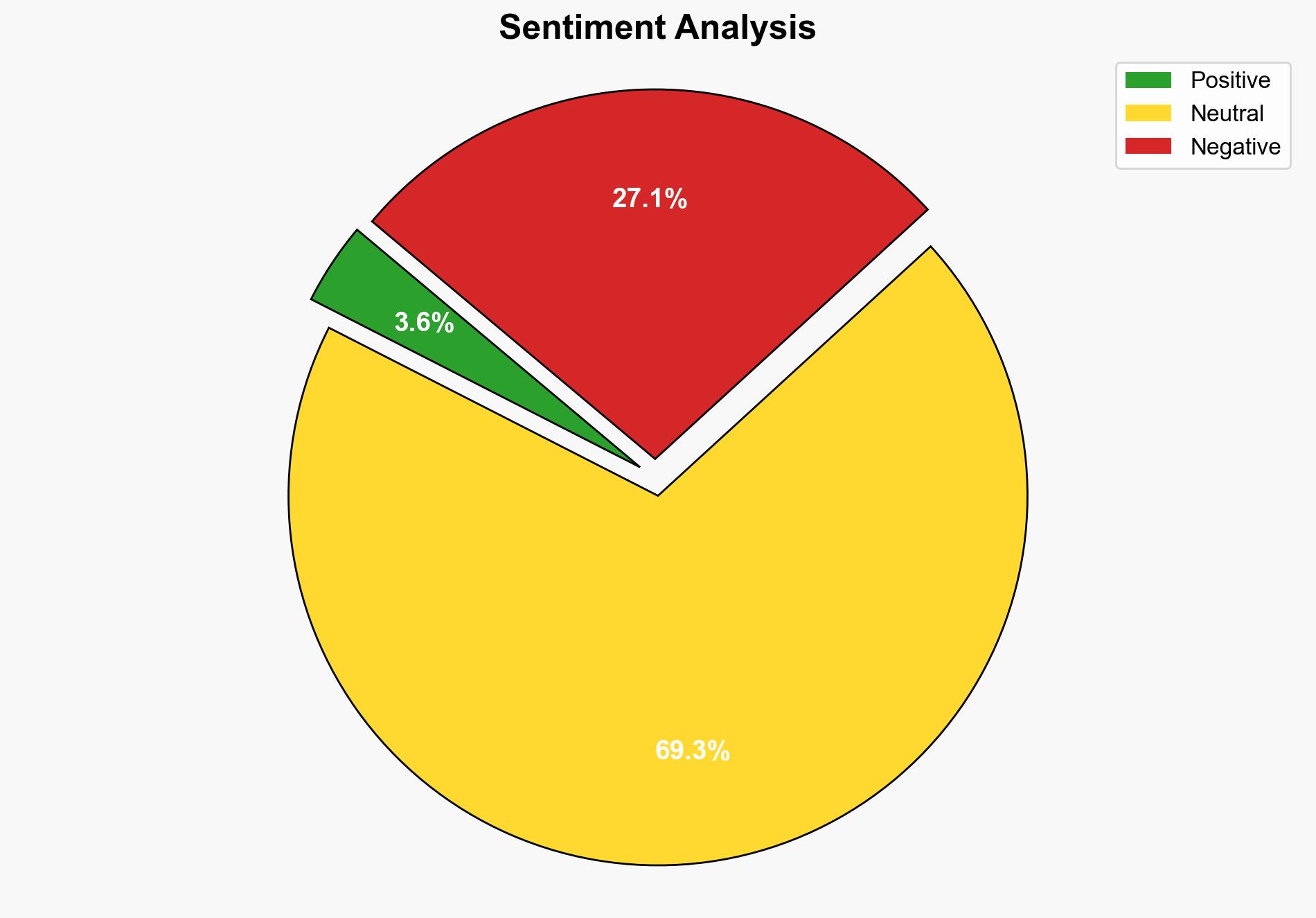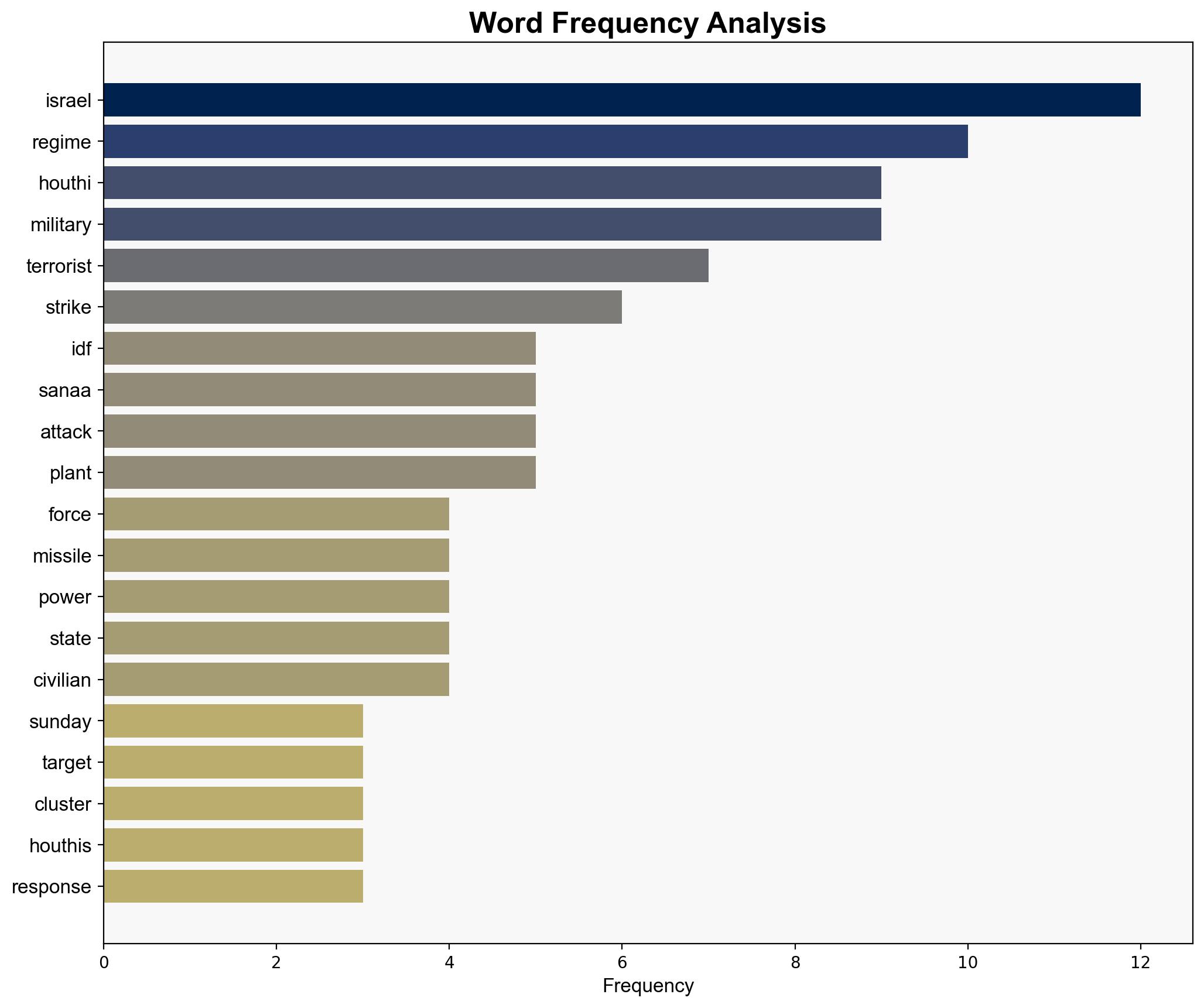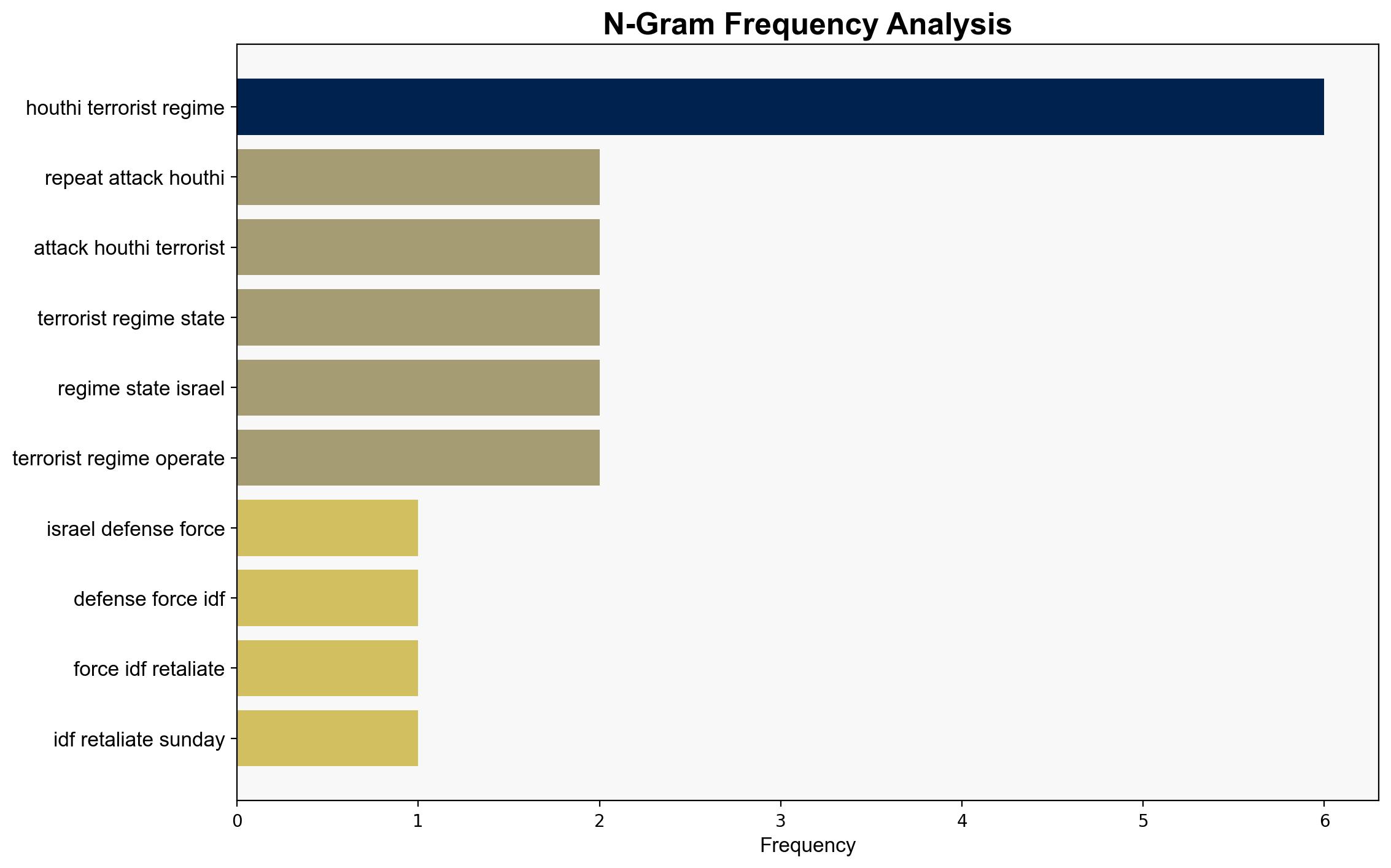IDF Retaliates Against Houthis Hits ‘Presidency Palace’ in Yemen’s Capital – Breitbart News
Published on: 2025-08-25
Intelligence Report: IDF Retaliates Against Houthis Hits ‘Presidency Palace’ in Yemen’s Capital – Breitbart News
1. BLUF (Bottom Line Up Front)
The most supported hypothesis suggests that the IDF’s retaliation against the Houthis is a strategic response to deter further attacks on Israeli territory, with a moderate confidence level. The recommended action is to enhance intelligence-sharing with regional allies to monitor Houthi activities and Iranian support, while preparing for potential escalations.
2. Competing Hypotheses
Hypothesis 1: The IDF’s strike on the Houthi-controlled ‘Presidency Palace’ and other targets in Sanaa is a direct response to recent Houthi missile attacks on Israel, aimed at deterring further aggression and degrading Houthi military capabilities.
Hypothesis 2: The IDF’s actions are part of a broader strategic initiative to disrupt Iranian influence in the region, using the Houthi attacks as a pretext to target Iranian-backed infrastructure in Yemen.
3. Key Assumptions and Red Flags
Assumptions:
– Hypothesis 1 assumes the primary motivation is immediate retaliation for Houthi attacks.
– Hypothesis 2 assumes a broader geopolitical strategy targeting Iran’s regional influence.
Red Flags:
– Lack of independent verification of the IDF’s claims about the dual-use nature of targeted sites.
– Potential bias in the source, given the political leanings of Breitbart News.
– Absence of Houthi or Iranian official responses in the report.
4. Implications and Strategic Risks
The IDF’s actions could escalate tensions in the region, potentially drawing in Iranian proxies and increasing the risk of broader conflict. The strikes on dual-use infrastructure may lead to humanitarian concerns, impacting civilian populations and international perceptions. The situation could also disrupt global shipping routes if maritime threats are realized.
5. Recommendations and Outlook
- Enhance intelligence-sharing and coordination with regional allies to monitor Houthi activities and Iranian support.
- Prepare for potential escalations by increasing defensive measures in vulnerable areas.
- Scenario-based projections:
- Best Case: Successful deterrence leads to reduced Houthi aggression and stabilization in the region.
- Worst Case: Escalation leads to broader regional conflict involving multiple state and non-state actors.
- Most Likely: Continued low-level skirmishes with periodic escalations.
6. Key Individuals and Entities
Joel Pollak, Senior Editor at Breitbart News, is mentioned in the source text, but his role is not directly relevant to the strategic analysis.
7. Thematic Tags
national security threats, cybersecurity, counter-terrorism, regional focus





